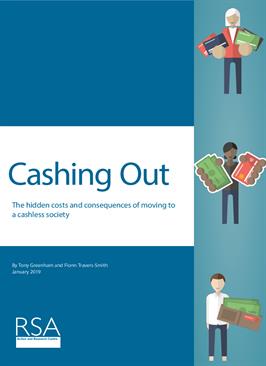This report concludes that the speed of the UK banking industry's move away from cash and bank branches is harming many communities and poses real economic and social risks, including to vulnerable consumers and smaller businesses.
Key Findings
- Substantial numbers still rely heavily on cash: 3.4 million people in the UK rarely use cash, but 2.2 million people rely almost wholly on cash, up from only 1.6 million people in 2014.
- Branches are not just about older people: Over one in three of 18 to 34 year olds are regular branch users and 25 to 44 year olds are more likely to deposit cheques or cash face to face in a branch (28 percent) than those over 65 (24 percent).
- SMEs rely on branches for credit as well as cash: Branch closures appear to reduce SME lending and hence are likely to damage employment, productivity and growth.
Four Reasons to Protect Cash and Branches
- Supporting local economies and SMEs: Bank branches have a positive impact on local economies, high streets and small businesses, including being important for customer services and SME lending.
- Providing choice and competition: There are legitimate reasons for cash usage such as free universal access, simplicity, transparency, privacy and lack of digital access.
- Promoting financial inclusion: Cash is the only free means of payments available to the consumer with universal coverage.
- Boosting economic resilience: Cash insures against cyber risks and other network failures.
Download the Full Report (PDF, 2.7 MB)
Read the Executive Summary online on Medium
pdf 2.7 MB
Authors


Related reports
-
State of paralysis
Toby Murray Josh Priest Amy Gandon Natalie Lai Jolyon Miles-Wilson Eirini Zormpa Kimberly Bohling
State of paralysis focuses on young people’s (16-24-year-olds) economic security and what it means for their health and wellbeing.
-
Pupil Design Awards 2022-23: final evaluation report
Aidan Daly
This evaluation illustrates how the Pupil Design Awards contributes to the pupils' creative self-efficacy, awareness of real-world issues and pupil and teachers' design capability, as well as the critical factors supporting teachers to complete projects and how we can make the awards more inclusive.
-
Unleashing the potential of the UK's cities
There is huge scope for cities to add dynamism to economies, cohesiveness to communities and redemption to our environment. The long-term dividends from doing so are enormous. The question is, how it is to be done?



